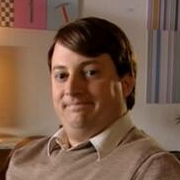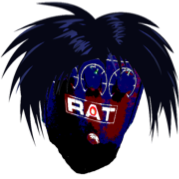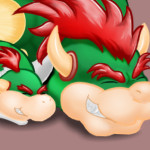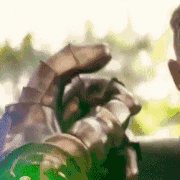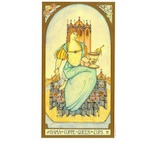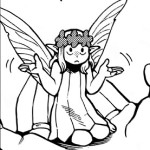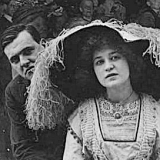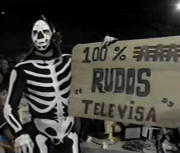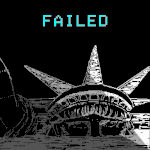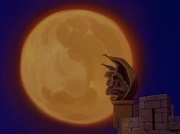|
boquiabierta posted:Iíve never read any Palahniuk and only saw Fight Club once twenty years ago. What would be a good one to start with? My first Palahniuk was Choke and it was great.
|
|
|
|

|
| # ? Jun 5, 2024 07:46 |
|
i finished house of leaves last week and now my life is meaningless
|
|
|
|
landgrabber posted:i finished house of leaves last week and now my life is meaningless There are a handful of books that, when I finished them, I ended up just picking them back up almost immediately and rereading them. House of Leaves is one of them. I just wanted to read it again because I enjoyed the experience so much the first time.
|
|
|
|
don longjohns posted:There are a handful of books that, when I finished them, I ended up just picking them back up almost immediately and rereading them. House of Leaves is one of them. I just wanted to read it again because I enjoyed the experience so much the first time. Here's a list of books I feel about : 1) House of Leaves 2) Хазарски речник 3) Se una notte d'inverno un viaggiatore 4) The "New York Trilogy" (And I don't even like Auster.) 5) Pale Fire 6) Donald Duck Pocket Book #63 Donald dreht durch!. (I just like it a lot. It adapts the Iliad, MŁnchhausen, and Das Rheingold.) 3D Megadoodoo fucked around with this message at 07:40 on May 11, 2023 |
|
|
|
landgrabber posted:i finished house of leaves last week and now my life is meaningless I like to walk garden labyrinths. It helps.
|
|
|
|
I wasn't as smitten with House of Leaves as everyone seems to be. Don't get me wrong, it was definitely an experience that I mostly enjoyed, but I always have a bad taste for books that are purposefully hard to read in a physical sense. Just let me read without having to go back-and-forth between pages or turn the book around in circles. I understand that's the point, but I still don't have to like it.
|
|
|
|
Good-Natured Filth posted:I wasn't as smitten with House of Leaves as everyone seems to be. Don't get me wrong, it was definitely an experience that I mostly enjoyed, but I always have a bad taste for books that are purposefully hard to read in a physical sense. Just let me read without having to go back-and-forth between pages or turn the book around in circles. I understand that's the point, but I still don't have to like it. gently caress you this is art: 
|
|
|
|
That's fair. I did enjoy a good CYOA when I was younger. Though, I recall keeping a pencil and dozens of bookmarks at hand to keep my place in the various paths I was following. But you'll have a hard time convincing me that page-long, tiny-fonted footnotes within footnotes or mirrored & spiraling text are fun to read.
|
|
|
|
It's funny when people insist that it's all essential to the emotional experience of the book to the point that an ebook version would ruin it.
|
|
|
|
An ebook would certainly be different, but yeah, having to flip the book around was a pain in the rear end. A friend of mine actually couldn't believe I had to do that to read it
|
|
|
|
Good-Natured Filth posted:That's fair. I did enjoy a good CYOA when I was younger. Though, I recall keeping a pencil and dozens of bookmarks at hand to keep my place in the various paths I was following. But you'll have a hard time convincing me that page-long, tiny-fonted footnotes within footnotes or mirrored & spiraling text are fun to read. They may not be fun but they are novel! 
|
|
|
|
I enjoyed how the plots were often batshit insane. "You, the protagonist, are a boy... turned into a cyborg by a ninja in the FUTURE so must now defeat the aliens who live in the haunted MAZE of your crush's father's local carnival~! Or else the world will die by earthquake material!
|
|
|
|
|
Good-Natured Filth posted:I wasn't as smitten with House of Leaves as everyone seems to be. Don't get me wrong, it was definitely an experience that I mostly enjoyed, but I always have a bad taste for books that are purposefully hard to read in a physical sense. Just let me read without having to go back-and-forth between pages or turn the book around in circles. I understand that's the point, but I still don't have to like it. the book flipping stuff is really only in a small section of the book, or at least the edition i read (the "remastered" full color one). that one also has relevant footnotes at the bottom of each page rather than in the back of the book which i think did wonders for me liking it.
|
|
|
|
Louisgod posted:I don't mind exposition dumps but the way TBP handled it was not only dry, but it was done in a stale, almost dry government Q&A press release way as opposed to a slow uncurling of the mysterious layers. Throw in drab and uninteresting characters and it all you're left with is the scientific reasoning behind the plot points, which is interesting but can't hold up everything. I read Mote in God's Eye more than a decade ago and don't remember the details, but the two things that stick with me are the 1950s-era housewife mold every female character is forced into and that the main story lays out one of the best ethical dilemmas I have ever read in fiction. As for the Three Body Problem, I was in a bar with some friends a while back and me and one other guy had read it while the other guy was curious, so we tried to sell him on it. I went for the whole interstellar communication and China-centric setting. But the other guy went on and on describing the whole society-is-a-microchip/video-game thing, and I could see the other friend totally checking out. It seems there's a subset of TBP fans who adore the VR chapters. I found them tedious and in need of a massive edit.
|
|
|
|
Nice Tuckpointing! posted:I read Mote in God's Eye more than a decade ago and don't remember the details, but the two things that stick with me are the 1950s-era housewife mold every female character is forced into and that the main story lays out one of the best ethical dilemmas I have ever read in fiction. "1950s-era housewife mold" is the perfect description, it feels like the authors were stuck in the 1950 cultural outlook and didn't bother to think or predict how human culture would evolve 1,000 years later. It's the only qualm I have and is otherwise a really fun read. I'm 400/550 pages in and super curious where it goes. Definitely a good recommendation if anybody's wanting to try some classic sci-fi. The VR scenes were really cool but were completely ruined by the ending of the first book, or at least once the concept behind it was revealed. The book in general seems overrated. Thanks, Obama.
|
|
|
|
Actually, I guess the VR scenes were fine. They just weren't my favorite bit is all (that would be the teardrop scene in Dark Forest. No spoilers. Anybody who has read it already knows what I am talking about.) Anyway, what did I just read? The Reader by Bernhard Schlink. Boy, if you thought a romantic tryst between a 15--year-old boy and a 36-year-old woman in 1958 Berlin was awkward, wait until the second half when Germany wrestles with the demons of its recent past. If I were German born post-war, I imagine this would have hit pretty hard. Bewilderment by Richard Powers. In which a widowed science guy tries to raise his neurodivergent 9-year-old son (two doctors day it's Asperger's, one says ADHD, one says OCD; dad says no to medication) while grieving the loss of his wife and seeing so much of her in his son. Also, he specializes in astrobiology and makes up alien worlds as bedtime stories about these planets and his son adores it. That stuff is nice. Then they attempt a mild Flowers For Algernon-style cognitive therapy (and mention Algernon many times) to help his son. That's the plot. It's fine. I enjoyed it enough. There's a lot of on-the-nose allegory for our current political/ecological collapse, and I am fine with that.
|
|
|
|
I read The Imjin War by Samuel Hawley and it was pretty fascinating. The Korean Navy scuttling like 2/3rds of their fleet before the Japanese made landfall, because of the cowardice of two men, is one of the weirdest self-owns I have ever read about, and it does not stop there. Maybe I should read more history, but I think I have had enough double-crossing, civilian massacres, and political maneuvering for a while. It is pretty funny how Toyotomi Hideyoshi was being blinkered by basically every single person in his life. Turns out when you behead everyone that gives you bad news, suddenly all the news from the war front will be compromised. Thanks to the fact only a couple people at court could communicate to Chinese envoys, when the war effort was failing catastrophically they were able to arrange a meeting where Hideyoshi was convinced China was finally admitting his superiority, and the Chinese officials were convinced that Hideyoshi was begging to become a vassal!
|
|
|
Louisgod posted:"1950s-era housewife mold" is the perfect description, it feels like the authors were stuck in the 1950 cultural outlook and didn't bother to think or predict how human culture would evolve 1,000 years later. It's the only qualm I have and is otherwise a really fun read. I'm 400/550 pages in and super curious where it goes. Definitely a good recommendation if anybody's wanting to try some classic sci-fi. This vibe was why I reacted so poorly to Brunner's Sheep Look Up, even though I liked the overall environmental collapse Armageddon story line
|
|
|
|
|
The other most recent fiction I read was The Sirens of Titan by Kurt Vonnegut. I started it in October and couldn't bring myself to finish it until late January. I've read two Vonneguts before (Slaughterhouse Five and Galapagos) and even though I appreciate his stuff, it just never clicked with me. He writes like an extended sigh. It's exhausting. But then I listened to the podcast "Kurt Vonneguys" by former Cracked alumni Michael Swaim and Alex Schmidt and I am sooooooo glad I did. They are huge Vonnegut fans and did a great job of making me appreciate what Vonnegut was doing with his writing. Still not my favorite prose style though. But I appreciate it.
|
|
|
|
I read my first Famous Five novel (they go on a picnic) and it was the most boring thing I've ever endured. I'm glad my older siblings warned me not to read them when I was a kid. Took me a week to finish because I kept getting so bored I couldn't take it in one sitting. Also without the dog they would be NOTHING. And they don't even realize it.
|
|
|
|
3D Megadoodoo posted:I read my first Famous Five novel (they go on a picnic) and it was the most boring thing I've ever endured. I'm glad my older siblings warned me not to read them when I was a kid. Took me a week to finish because I kept getting so bored I couldn't take it in one sitting.
|
|
|
|
jesus WEP posted:i liked those books as a small child. i tried to read one again recently and even nostalgia couldn’t power me through more than 50 pages. they are wretched I think there's a bee or wasp in my ducting. Nothing to do with the matter at hand but I'm on the bog and there's hella echoy buzzing above. And this I'll probably remember longer than the "plot" of the book I just read.
|
|
|
|
The Illustrated Al: A collection of comics drawn from the lyrics of Weird Al songs that never had official music videos. It turns out there's probably a reason these songs never warranted the music video treatment from a musician that made heaps of music videos. It's fun to reminisce through the lyrics, and the artists they chose are good at their jobs. But the actual representation of the songs didn't really mesh most of the time. Also, I forgot how psychopathic some Weird Al songs are, and they definitely hit me differently now compared to when I first heard them in my teens.
Good-Natured Filth fucked around with this message at 15:21 on May 18, 2023 |
|
|
|
I enjoyed ďHouse of LeavesĒ and doing something a little different with physical pages once in a while doesnít bother me but every time I picked up another book at him and saw that it was all out of order and backwards and spiraling and all that I lost interest. But I also think a book like ďSĒ by Dorst would be hard to put in digital form and can appreciate it.
|
|
|
|
Just listened to How High We Go in the Dark and liked it a lot. I think I would have liked it more if I had read it. I knew that all of the stories were supposed to be intertwined but the audio format made it a bit harder than it should have to figure out how the stories were intertwined. I really enjoyed the writing and found the stories to be really original.
|
|
|
|
Just finished Tom Reiss's The Orientalist, a biography of interwar and early WW2 author Lev Nussimbaum/Essad Bey. Lev's life was wild and short, coming of age as the son of an Azerbaijani Jewish oil magnate in Baku during the Bolshevik Revolution, jumping in and out of high society as he and his father fled and tried to find their footing elsewhere, with Lev eventually converting to Islam and assuming the name Essad Bey. He proceeded to hide in plain sight for a time in Nazi Germany and Fascist Italy with the fiction of being an enigmatic Muslim "prince" until dying in isolation and disgrace in Positano, Italy, during the height of the Axis. If I had a complaint, it's that Reiss tends to meander a fair bit, as he puts a lot of words into establishing the context that his subject lives in at any given time. Which is good, because it's fascinating stuff, but it does make the actual life narrative of his subject a bit disjointed. The Black Count, about Alexandre Dumas's Napoleonic general father Alex Dumas, had the same "issue," but was still a great read.
|
|
|
|
Dracula (Bram Stoker, 1897) Itís Dracula. I donít think I need to explain the plot, so instead, letís talk about how itís written. Draculaís an epistolary novel, which can be a pretty neat literary device. It allows you to less show the plot than to show your charactersí reactions to it, and in doing so, it informs the reader on each characterís motivation and really what makes them tick. Thatís if you commit to it. If you donít, then itís really just gimmicky limited third-person. Pamela doesnít commit to it and neither does Dracula. No matter whose diary weíre supposed to be reading, theyíre all written in the same voice, and they all have such long, long stretches of dialogue quoted verbatim in a way no person would actually remember things. Stoker tries to lampshade this by saying Mina is learning from her journalist friend how to retain long stretches of dialogue word for word, but then how is everyone else doing it as well? Most adaptations of Dracula, similar to most adaptations of Dr. Jekyll and Mr. Hyde, add some additional materialóoften a love interestóand I think thatís because, as itís written, I donít think Dracula is motivated by anything at all. He doesnít have any reason to, after centuries of undead life, uproot from Transylvania to London. He has no especial reason to turn Lucy or Mina into vampires. Van Helsing tries to explain that Dracula has a childlike mind and is exploring his boundaries but that neither makes sense nor does it explain anything. And speaking of explanations, Dracula doesnít explain any of its vampire loreóvampires have no reflections, have to be invited in, etc.óand you just have to know. Granted, Dracula was hardly the first vampire novel and readers would have known, but itís strange that, in universe, Van Helsing doesnít explain anything about vampires to the other characters.
|
|
|
|
Cheap Land Colorado: Off-Gridders at America's Edge by Ted Conover. Remarkably interesting look at one of the only places left for frontier life in America. Conover dug up so many interesting stories, and the book really builds to the chapters at the end about crime, Covid, and even the supernatural. Meditative, descriptive, and lived in. Couldn't believe how new it was, it came out in November 2022 and I had apparently bought it on Kindle for $3 in February because I have the dream of the idea of prepping in my head even though I will never do it. Plus the Amazon reviews had a few people complaining about the author shoehorning his liberal viewpoint in, which is exactly the type of criticism of a book I love. (It was even-handed, they were mad he didn't write "they were right" when reporting that the virus was a myth.)
|
|
|
|
Just finished Ascension: A Novel by Nicholas Binge - sci-fi with elements of aliens, time/space fuckery, conspiracy, and other surprises throughout - including the constant pull of discovering the unknown. I found out about this book by querying google bard for books that someone who liked "Anathem" by Neal Stephenson might like. I can't say it was anything really like that book, other than there maybe being some sense of adventure involving scientists. It was however fairly quick and enjoyable read. The book is written mostly as a series of letters (hey, thanks to Ortho's Dracula post, I now know there's a term for this) from a scientist on an expedition, to his niece, who isn't involved much in the action of the book. As sci-fi goes, there wasn't a whole ton of character development, and the character development that was present was nothing to write home about really. Still, I did enjoy that the book continued to surprise as I kept reading, and new ideas were introduced throughout - pretty much to the end. Overall, I enjoyed the book. e: Forgot to add - it's been a long time since I've watched x-files (probably since it originally aired), but this book gave me total x-files vibes. Colonel Taint fucked around with this message at 18:59 on May 25, 2023 |
|
|
|
Cold People by Tom Smith. It's a fairly generic dystopian sci-fi story: aliens invaded and took over Earth (which happens in the first twenty pages and is never referenced again), exiling the human survivors to Antarctica, where the story follows the survivors and experiments to genetically engineer a new race of humanity that can thrive in the brutal conditions. The story jumps around between time periods and characters, eking out a fairly generic 'are humans the real monsters?' story and examining man's inhumanity to man and doubly so when the prospect of genetic engineering is on the table. All told, ho hum in my eyes. You'd think that aliens conquering the world and forcing all humans to Antarctica would take more than thirty pages and ever come up again, but it doesn't.
|
|
|
|
Adjustment Day by Chuck Palahniuk. His most complex novel I've read, I kept notes to keep track of all the various characters. From viewpoints of a revolving cast it describes a what-if scenario of a new "Mein Kampf"/self-help book being written and creating some sort of tribal fascism in the US, except instead of jews the targets are liberal college professors and corrupt politicians. Just as Fight Club the new movement starts in support groups as that's where you supposedly find the men with nothing to lose. Palahniuk even makes fun of the similarities quote:“So this is like Fight Club?” At first I didn't like the novel, but it grew on me. It's good satire about right wing nazi fantasies and identity politics. I particularly enjoyed some characters having insights on American literature classics. There were funny bits like quote:In their first wedded moment alone, Charlie did take his new wife boldly in his arms. In noble modesty he acceded to Shasta that his was a simple hard-laboring, tax-paying Caucasian penis without the dimensions or the stamina accredited to the black or the homosexual. His might not bring her the fulfillment of others, but he would strive to sow a multitude of seeds in her. The ending is unsatisfying, after creating the new tribal US Palahniuk doesn't know what to do with it and the novel peters out.
|
|
|
|
David Mogo, Godhunter by Suyi Davies Okungbowa: The story starts off by introducing David, his backstory as a half-god, how the gods fell down to Earth from their plane of existence, and what he does as a godhunter. He quickly takes on a job that is bigger than he planned for and things go awry. If the book stretched this setup out further with many more jobs to show off the tools and tricks of his trade, I would have really enjoyed the book. But instead, about 1/3 of the way in, it flips the story into a (kind of) hero's journey. David needs to find his true self to defeat a big bad. Like most hero's journeys, he makes new friends, and their lives are put on the line to prevent the end of the world (though, nearly every named character he meets makes it through unscathed). It's not a bad hero's journey, but I read plenty of those. I would've rather read a monster-of-the-week story about his godhunting because that setup was intriguing. The story is set in Lagos, Nigeria. I know very little about Nigeria in general, let alone the city of Lagos, so it was interesting learning about the city through the lens of David. I opened up Google Maps pretty regularly to get a sense of direction because the author does a thorough job explaining the various streets and buildings being discussed in the story. It was a decent read, but I would've preferred the initial act of the book to be the whole book.
|
|
|
|
The Godmakers by Frank Herbert, a collection of related short stories that got compiled into one narrative later on. Follows the career of Lewis Orne, a government agent for an interstellar society that was once fractured apart by horrible war. Now this society, seeking to restore itself, evaluates worlds they rediscover for signs of a warlike culture, and enact various plans to scourge it from those societies they find to eventually reintegrate these worlds as peaceful members. Of course, this scourging is not gentle. When Orne discovers a gently caress-up that nearly lets a warlike society in, he gets picked up by Investigation-Adjustment (basically Internal Affairs) to go searching for other gently caress-ups like that including looking for toxic movements inside interstellar society's upper echelons. This eventually leads him to the world of Amel where representatives of all religions known to humanity collect under an enforced peace, and seem to have their own designs against I-A. Inserted in new chapters between the original stories is a framing narrative of the disciples of Amel seeking to create their own god and the possibility Orne is somehow connected to it. This is extremely prototype Dune material, where you can see Herbert taking stabs at stuff that would become the Bene Gesserit, the Kwisatz Haderach, and Dune's more robust criticisms of power and its use. It wasn't bad, but it's hard to call it good either. It was kind of interesting, though, if only to see those parallels to what would come later. Also as an aside, I'm a fan of the RPG Fading Suns and while Dune is usually listed as a major influence on FS, this feels way more in line with the game. Like I could believe that most of this was written as an alternate history to the Fading Suns setting.
|
|
|
|
Since it gets recommended so much, I just finished The Goblin Emperor. It was an excellent YA fantasy novel and Iím glad I read it. Itís just too YA for me to continue but I didnít have any cringes throughout the book or anything. Solid rec and good book.
|
|
|
|
|
Wonder Valley by Ivy Pochoda I picked this one up from the library because Alta magazine gave a good advance review for the author's upcoming release, and I'm glad I did. She's a native of Brooklyn, but she's got California down pat. The novel starts off with a guy running naked against traffic in Los Angeles during morning commute in 2010, and how the city reacts to the live coverage, but goes on to interleave with the bulk of the characters meeting each other at a chicken farm/hippie commune in the desert near Twentynine Palms in 2006: James and Owen, the twin sons of the farm owner/wannabe faith healer Patrick and his put-upon wife Grace Britt, a young woman who hitchhiked onto the desert highway out of Los Angeles, leaving her old life behind Sam and Blake, two drifters with imprisonment and multiple violent felonies in their past, who are chasing Sam's fantasy of holing up in the mostly abandoned desert bungalow community of Wonder Valley not far from the farm. There's two characters who are only present in the 2010 LA segment of the narrative, and get drawn into the others' reconnecting: Tony, a dedicated runner and lawyer whose high-status career trajectory got derailed, who is now struggling to keep up with his family's expensive lifestyle, and who starts the action of the novel by impulsively choosing to abandon his car mid-commute and chase after the naked runner Ren, a young man just released from juvenile detention in New York who came cross-country to find his mother Laila in LA, only to discover her living on the street. Pochoda really vividly describes a broad swath of Southern California, leaning on the dramatic desert sunrises and sunsets, as well as the mercurial weather. She recognizes (and has some of her characters realize) that it's not sunshine 24/7/365; some of the most evocative scenes involve sudden desert thunderstorms, or the all-morning gray overcast that's so familiar throughout coastal California. Her settings are well-chosen, too: the California hippie commune is practically a stock trope at this point, and as someone who's spent time around such scenes, I really appreciate how effectively she deflated it by the end of the story. Tony is the only touchpoint for the idealized glamorous LA lifestyle, living in the close-but-no-cigar Beverlywood neighborhood, and he secretly can't stand it. Street life in LA is depicted sensitively but unflinchingly; Blake the drifter ends up in a stationary trailer parked on a side street, and Ren and his mom Laila are camped out in tents on Skid Row. The homeless characters aren't depicted just as victims of circumstances, but with a sense of agency and, in Laila's case, resolved self-determination. A big chunk of the book is taken up with the day-to-day stresses and cycle of life on the street, and that continues to be powerfully relevant. Ultimately, all the characters are outsiders in one way or another. There's a strong sense of alienation that permeates all their stories, and that I can't say is unfamiliar in my own life. There's plenty of stories that have been told about people as atomized and anonymous against the teeming urban backdrop, but I felt this one does it particularly well. I'll be picking up the author's new book, too, as it's apparently about a couple of women getting out of prison and navigating life on the outside, and I'm excited to see how she tackles the consequences of the modern carceral state.
|
|
|
|
Oh thatís good to know I wasnít alone in enjoying The Three Body Problem but disliking The Dark Forest.. I kept seeing people losing their minds about the trilogy and thought I was the outlier. The first book was fantastic & it was interesting to learn about all the work that went into getting it past censors and adapting it into English. But the second book was so dull, bailing on interesting sci-fi for tedious earth politics. (Side note: seems like any book where the US defers to the UNís authority on a global crisis was not written by a western author.) the space battles were so dull & would stop dead for pages of characters rambling, and I think at some point someone got absorbed by a magic couch. Did not open the third book.
|
|
|
|
Beautiful You by Chuck Palahniuk Palahniuk imagines a world were every female abandons her life to hide in a cave and masturbate. The first part is a Fifty shades of grey parody but after that it seems like the author ran out of ideas and added magical ointments and bloodstream nanobots to move the plot forward. The elaborate sex scenes and descriptions of female reproductive organs were good porn.
|
|
|
|
Finished a few books over the past month. The Mote in God's Eye by Larry Niven and Jerry Pournelle - Such an interesting book and one that's best viewed in the lens of the year it was written (1974). At the time I could see how the book would've been highly regarded and appreciated as it mirrors an old Star Trek extremely well though adds in a splash of 60s/70s culture instead of taking a more progressive view of what human society would be like in the 30th century specific to advancements in relations with other nations or societal equality. Men drink, they smoke, and they have the pretentious attitude of a 60s know-it-all whose views are static. The characters in the book rarely have an inquisitiveness that's open to looking for differences; instead, most viewpoints are seen from a purely human standpoint, as if humanity is the one lifeform that all other life should be based on. This attitude makes for stubborn characters that are to blame for their own ignorance and mistakes. You also have the stereotypical personas seen in old Star Trek too: The Irish engineer, accent and all, the pretty boy captain, the stoic and militaristic Russian admiral, the liberal yet swooning love interest. If you can accept and move beyond this snapshot in time, you'll find some truly excellent writing, a neat setting with cool ideas, and a really intriguing alien race. The pacing is well done and there are enough surprises to keep you wondering what's going to happen next. Highly recommended if you're looking for some classic sci-fi. Parable of the Sower by Octavia Bulter - I've had some people tell me this is their favorite book and after reading it, I can understand why. Written in 1993 and taking place in the 2030s, the setting is eerily familiar to our world today: The US has been devastated by climate change to the point that society has more or less broken down, with the richer remaining rich while the poor and middle class are all but destitute. Inflation runs rampant, homelessness rules the day, food is scarce, and in southern California, where most of the book takes place, rain only comes once every five or six years. A street drug has pushed many to effectively go crazy, leading to some very dark scenarios that all but convince that this is where we today are headed. Any semblance of law is not enforced, and neighborhood communities are left to fend for themselves. Things quickly break down for the main character, who is forced out of her gated community to find a more hospitable location, where survival is difficult The journey is gripping and the main character's main drive keeps you wanting to see what happens next. Beyond some slow pacing, this was a very enjoyable yet difficult read. Parable of the Talents by Octavia Butler - A sequel to Parable of the Sower, I was expecting quite a bit after the exceptional story told in the original. Unfortunately, what's written is very disappointing and desperately needed more time in the editing room, with a possible overhaul of how the story is told. The book details the journey of the main character in the first book through her journal entries over the years, as read and commented on by another person. The way it's written, in my opinion, straight up doesn't work; the journal entries are long and tend to ramble with details that aren't pertinent later on, or are too detailed to the point where it doesn't feel like a journal entry as much an author writing a story. The book would've worked much better if it were told in the same way as the original. Longer than the first book, I often felt bored during many parts of the book due to Butler revisiting themes she's already established, either in the first book, or this one. She labors on with how horrible people are to the point where it feels like a personal grudge as opposed to themes to tell a story. There are some very dark and gritty scenarios which highlight the raw inhumanity individuals or radicalized groups revert to when put in positions of power, which are beautifully written yet don't make for compelling reading as it comes off as highlighting suffering for the sake of proving a point (that organized religion is bad). There's too much time spent on world building instead of progressing the story and there were whole chapters where I was speed reading just to get to the next scenario. Looking back, very little of the world building I sped through mattered in the end, which is unfortunate. The ending was a bit top predictable and felt rushed. Butler said she originally wanted to include Talents in with Sower as one book. She should've either done that or not written Talents as Sower by itself is a masterpiece.
|
|
|
|
The God of Endings by Jacqueline Holland. The premise at first is interesting: a child is turned immortal against her will in the mid-19th century and lives in the present day keeping a low profile running a preschool. Unfortunately, while the author is really good at describing scenes and relationships, the protagonist is an intensely boring character and the plot is formulaic. She turns out to be a vampire, and she paints. That's all she does. Paints and teaches kids. Things just kind of happen around her as half the book is filled with flashbacks where she just drifts through existence doing what male characters tell her to. She does nothing of her own initiative and no answers are given to any questions that are raised. I'm all for a quiet, melancholy book, but I do expect my protagonists to have some kind of goals, motivation, and character development, all of which this book lacks.
|
|
|
|

|
| # ? Jun 5, 2024 07:46 |
|
Just finished The Eye Of The World , in the Wheel of Time series. I'd read the first seven or eight a while back, and man, I don't know what it is, but this poo poo just hits right for me. Some of the women v men stuff is not good, but I really like the world and characters. There's neat powers and abilities, and I really like the glossary in the back that explains all the terms and stuff. I know that's not for everyone, but I like it.
|
|
|



